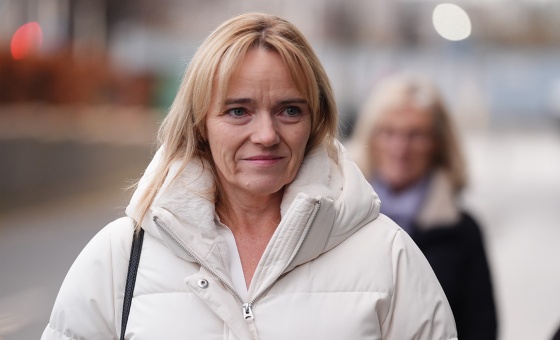This is the last article you can read this month
You can read more article this month
You can read more articles this month
Sorry your limit is up for this month
Reset on:
Please help support the Morning Star by subscribing here
A COVERT surveillance operation authorised by a Northern Ireland police chief in a bid to unmask a journalistic source was unlawful, a tribunal has ruled.
The Investigatory Powers Tribunal (IPT) quashed the decision made by former Police Service of Northern Ireland (PSNI) chief constable Sir George Hamilton, to approve the Directed Surveillance Authorisation in an investigation into the leaking of a confidential document that appeared in a documentary on a Troubles massacre.
The tribunal, chaired by Lord Justice Singh, also awarded damages of £4,000 each to documentary makers Barry McCaffrey and Trevor Birney, in a judgment issued today.
The IPT had been examining allegations that the award-winning journalists were subject to unlawful covert surveillance by British authorities.
The tribunal also looked at separate allegations that the PSNI and the Metropolitan Police in London unlawfully accessed Mr McCaffrey’s phone data in unrelated operations, in 2013 and 2012 respectively.
The two forces had already conceded that those 2012 and 2013 operations were unlawful.
The tribunal also quashed the two authorisations for those two phone data operations, but did not award any damages to Mr McCaffrey in those cases.
In 2018, Belfast-based Mr McCaffrey and Mr Birney were controversially arrested as part of a police investigation into the alleged leaking of a confidential document that appeared in a documentary they made on the 1994 loyalist paramilitary massacre in Loughinisland, Co Down.
The PSNI later unreservedly apologised for the way the men had been treated and agreed to pay £875,000 in damages to the journalists and the film company behind the documentary.
In its judgment, the IPT said: “We will quash the DSA [Directed Surveillance Authorisation]. We have determined that a declaration of its unlawfulness would not be sufficient to afford the claimants just satisfaction in respect of its incompatibility with the rights protected by article 10 [of the European Convention of Human Rights].”
Reacting to the judgment, Mr Birney and Mr McCaffrey both called for a public inquiry into police surveillance of journalists in Northern Ireland.
“This landmark ruling underscores the crucial importance of protecting press freedom and confidential journalistic sources,” said Mr Birney.
“We hope that the judgment today will protect and embolden other journalists pursuing stories that are in the public interest.
“The judgment serves as a warning that unlawful state surveillance targeting the media cannot and should not be justified by broad and vague police claims.
“The judgment raises serious concerns about police abuse of power and the law, and our case has exposed a lack of effective legal safeguards governing secret police operations.”
Mr Birney added: “Only a public inquiry can properly investigate the full extent of unlawful and systematic police spying operations targeting journalists, lawyers and human rights defenders in the north.”
Mr McCaffrey told reporters: “For this court to have found that a Chief Constable has acted unlawfully, we think is a major embarrassment, and it’s something that needs there to be a public inquiry.
“No other alternative – we need a public inquiry.”










